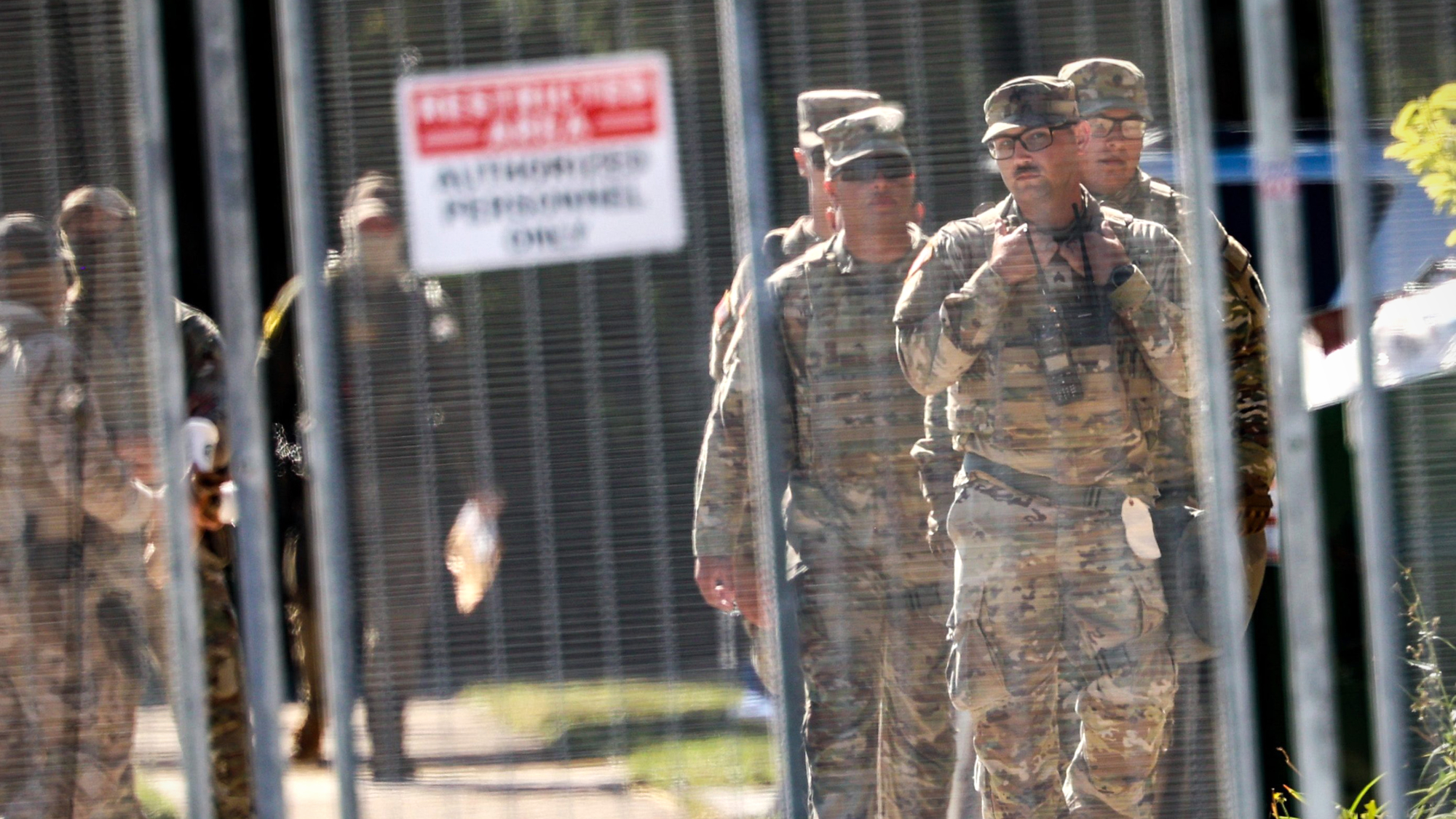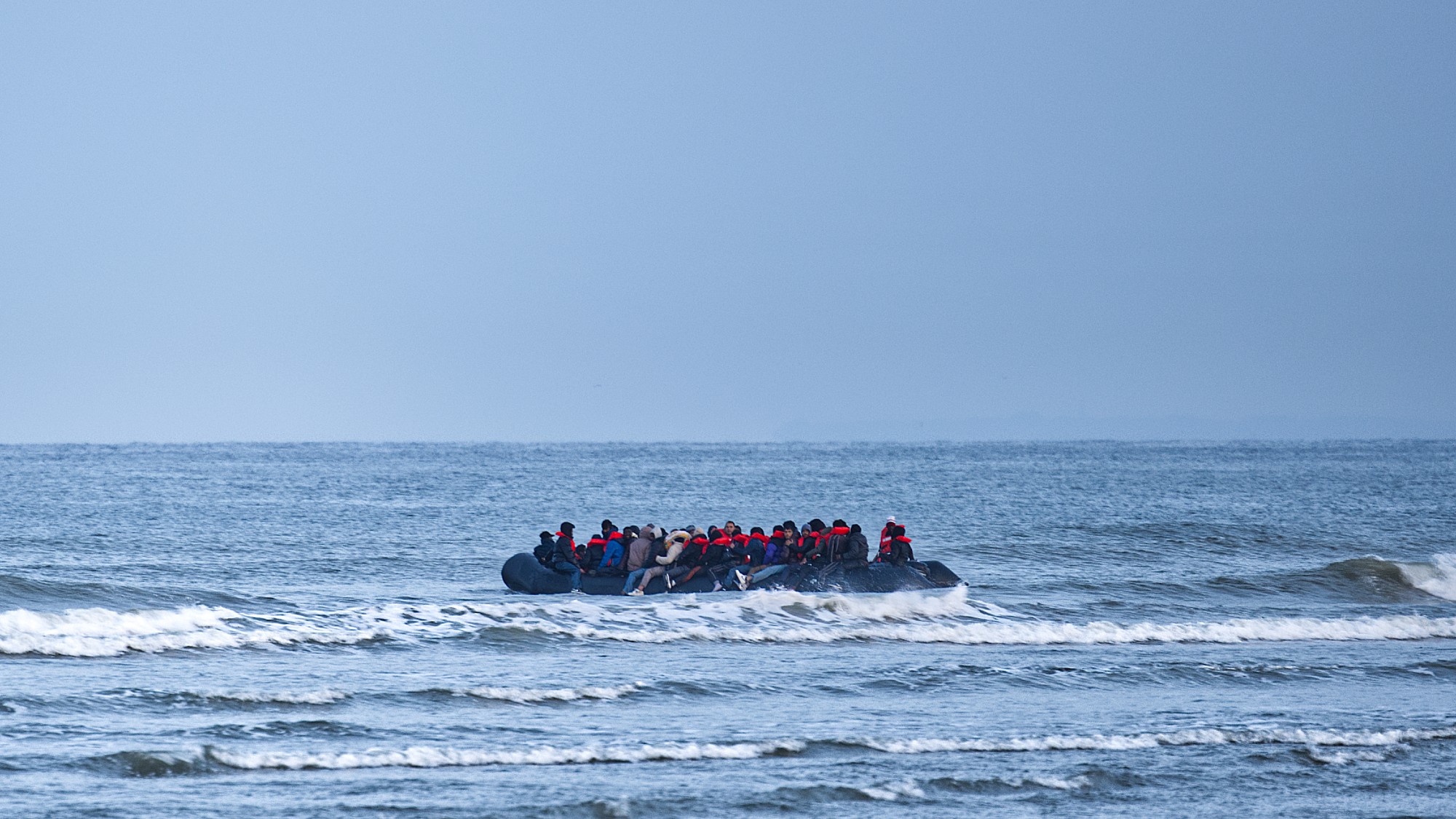Extremism is becoming more common among veterans and service members
Nearly 500 people arrested for extremist crimes between 2017 and 2023 had military backgrounds


A free daily email with the biggest news stories of the day – and the best features from TheWeek.com
You are now subscribed
Your newsletter sign-up was successful
There is a steadily growing faction among U.S. military veterans and service members: extremists. While the number of people in the military who practice extreme ideologies remains small compared to the 2.86 million active service members and 16 million veterans, experts are concerned that this extremism is continuing to infiltrate armed-forces ranks.
Recent deep dives into the phenomenon have shined a light on these ideologies, which most often manifest as far-right extremism but can encompass all facets of the political spectrum. And concerns are growing that this radicalization could lead to violence, as it has in the past.
How widespread is extremism in the military?
No data is absolute, but reports have attempted to quantify military extremism. More than "480 people with a military background" have been "accused of ideologically driven extremist crimes from 2017 through 2023," according to an investigation from The Associated Press. At least 230 of these arrests have been in connection with the Jan. 6, 2021, insurrection at the U.S. Capitol. At least 80% of extremists with military backgrounds identify with the far-right, according to the National Consortium for the Study of Terrorism and Responses to Terrorism (START).
The Week
Escape your echo chamber. Get the facts behind the news, plus analysis from multiple perspectives.

Sign up for The Week's Free Newsletters
From our morning news briefing to a weekly Good News Newsletter, get the best of The Week delivered directly to your inbox.
From our morning news briefing to a weekly Good News Newsletter, get the best of The Week delivered directly to your inbox.
Veterans have also "made up four of the five members of Proud Boys leadership indicted by federal prosecutors on seditious conspiracy," according to an investigation from RAND. This investigation also found that "having a military background was the single strongest predictor of involvement in a mass casualty attack in the United States from 1990 to 2021," while "having a military background increased the lethality of attacks by up to two times."
Why is military extremism becoming more common?
When people in the military "radicalize they tend to radicalize to the point of mass violence," START's Michael Jensen said to the AP. Among extremists, the top predictor of becoming a mass casualty offender "was having a U.S. military background — that outranked mental health problems, that outranked being a loner, that outranked having a previous criminal history or substance abuse issues."
Prior studies, including those from the Department of Defense (DOD), have "confirmed what many observers of the military" already knew: extremism "doesn't have to be big to be lethal," said The Atlantic. Participation in violence from "even a small number of individuals with military connections and military training … could present a risk to the military and to the country as a whole," a DOD report said in 2023.
Although the "military draws from the general population, initial vetting and training should screen out people who do not belong in the military for various reasons," said The Atlantic, but this does not always happen. And veterans are "considered significant additions to violent extremist groups, given their past weapon training and their logistic and leadership skills," said the RAND investigation, and veterans also "lend a sense of legitimacy to militant groups that can further aid recruitment." The military also skews male and white, two demographics that are "associated with right-wing (and to some degree left-wing) extremism in the United States."
A free daily email with the biggest news stories of the day – and the best features from TheWeek.com
What can be done about this?
Recent programs have been created to counteract veteran suicides, and "these initiatives should also be replicated to combat extremism among veterans," said U.S. News and World Report. But extremists already indoctrinated are hard to remove from this lifestyle, so "greater efforts to screen bad recruits in the first place is thus critically important."
The Pentagon and Congress have also "called for greater efforts to root out extremism in the ranks," said The Intercept. This includes efforts to "implement steps and provide recommendations addressing the threat posed by extremist activities. However, politicians have often ignored reports identifying "veterans with negative military experiences as the demographic at higher risk for radicalization."
Justin Klawans has worked as a staff writer at The Week since 2022. He began his career covering local news before joining Newsweek as a breaking news reporter, where he wrote about politics, national and global affairs, business, crime, sports, film, television and other news. Justin has also freelanced for outlets including Collider and United Press International.
-
 How to Get to Heaven from Belfast: a ‘highly entertaining ride’
How to Get to Heaven from Belfast: a ‘highly entertaining ride’The Week Recommends Mystery-comedy from the creator of Derry Girls should be ‘your new binge-watch’
-
 The 8 best TV shows of the 1960s
The 8 best TV shows of the 1960sThe standout shows of this decade take viewers from outer space to the Wild West
-
 Microdramas are booming
Microdramas are boomingUnder the radar Scroll to watch a whole movie
-
 Judge blocks Hegseth from punishing Kelly over video
Judge blocks Hegseth from punishing Kelly over videoSpeed Read Defense Secretary Pete Hegseth pushed for the senator to be demoted over a video in which he reminds military officials they should refuse illegal orders
-
 US to send 200 troops to Nigeria to train army
US to send 200 troops to Nigeria to train armySpeed Read Trump has accused the West African government of failing to protect Christians from terrorist attacks
-
 ‘Bad Bunny’s music feels inclusive and exclusive at the same time’
‘Bad Bunny’s music feels inclusive and exclusive at the same time’Instant Opinion Opinion, comment and editorials of the day
-
 Hegseth moves to demote Sen. Kelly over video
Hegseth moves to demote Sen. Kelly over videospeed read Retired Navy fighter pilot Mark Kelly appeared in a video reminding military service members that they can ‘refuse illegal orders’
-
 Why is Trump’s alleged strike on Venezuela shrouded in so much secrecy?
Why is Trump’s alleged strike on Venezuela shrouded in so much secrecy?TODAY'S BIG QUESTION Trump’s comments have raised more questions than answers about what his administration is doing in the Southern Hemisphere
-
 Supreme Court bars Trump’s military use in Chicago
Supreme Court bars Trump’s military use in ChicagoSpeed Read
-
 Trump unveils new ‘Trump class’ US warships
Trump unveils new ‘Trump class’ US warshipsSpeed Read
-
 ECHR: is Europe about to break with convention?
ECHR: is Europe about to break with convention?Today's Big Question European leaders to look at updating the 75-year-old treaty to help tackle the continent’s migrant wave
